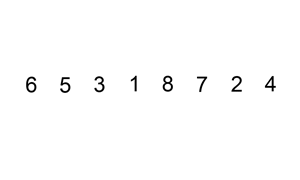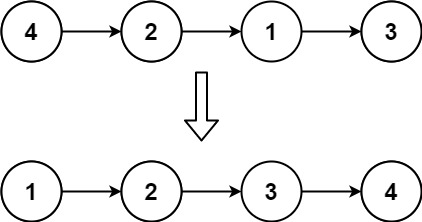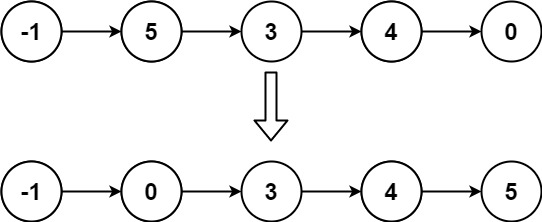動機
複習linked list的處理手法
Problem
Given the head of a singly linked list, sort the list using insertion sort, and return the sorted list's head.
The steps of the insertion sort algorithm:
- Insertion sort iterates, consuming one input element each repetition and growing a sorted output list.
- At each iteration, insertion sort removes one element from the input data, finds the location it belongs within the sorted list and inserts it there.
- It repeats until no input elements remain.
The following is a graphical example of the insertion sort algorithm. The partially sorted list (black) initially contains only the first element in the list. One element (red) is removed from the input data and inserted in-place into the sorted list with each iteration.

Example 1:

Input: head = [4,2,1,3]Output: [1,2,3,4]
Example 2:

Input: head = [-1,5,3,4,0]Output: [-1,0,3,4,5]
Constraints:
- The number of nodes in the list is in the range
[1, 5000]. -5000 <= Node.val <= 5000
Sol
隨時記得把linked list的next設成None
class Solution:
def insertionSortList(self, head: ListNode) -> ListNode:
if not head:
return None
else:
def insert(start, node):
ret = start
prev = None
while start:
if node.val <= start.val:
if prev:
prev.next, node.next = node, prev.next
else:
node.next = start
ret = node
return ret
else:
prev, start = start, start.next
prev.next = node
node.next = None
return ret
start, cur = head, head.next
start.next = None
while cur:
tmp,cur.next = cur.next, None
start = insert(start, cur)
cur = tmp
return start